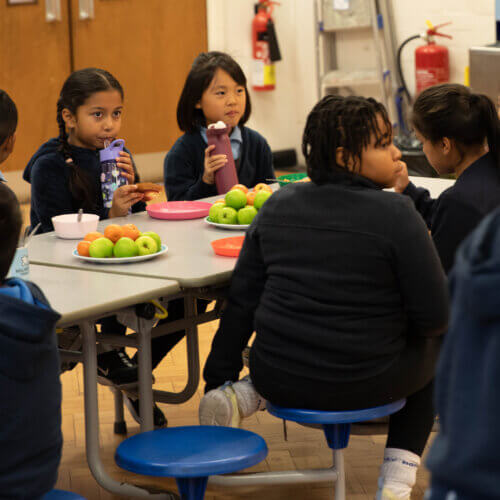What’s for Breakfast?

Magic Breakfast makes a difference to over 200,000 children and young people every day by offering breakfasts and expert advice to tackle morning hunger in schools across England and Scotland. We exist to make sure no child or young person is too hungry to learn.
Magic stories
We’re transforming lives one breakfast at a time, but to eliminate child hunger for good is a huge challenge. Read about the incredible individuals, organisations, schools and children who inspire us to strive towards a healthier and more equal society.

My family are from Fermanagh in Northern Ireland and I grew up in Dagenham. My mum often used to invite children into our house for beans on toast after school. I remember watching them eating with urgency. My mum used to say they didn’t have enough at home to keep them going. That stayed with me.
Carmel McConnell MBE, Our Founder
Just 28p can provide a nutritious breakfast to a hungry child
Magic Breakfast offers over 200,000 breakfasts every day to children and young people in schools across England and Scotland.
Magic Breakfast research shows:

The importance of breakfast
The British Nutrition Foundation’s recent report demonstrates the importance of breakfast on both health and attainment. It highlights how skipping breakfast is widespread in school-aged children, especially teenage girls. For vulnerable children especially, breakfast at school is key to health, educational equality and learning outcomes.
Help level the playing field
As we see children fall behind their wealthier peers, we need to act quickly before all the damage is done, before all their potential is lost. Will you help children and young people get the best possible start in life?
Subscribe to email updates
Want to hear more? Sign up to receive an extra slice of Magic Breakfast in your inbox and stay up to date with how we can all do our part in ending childhood morning hunger.







